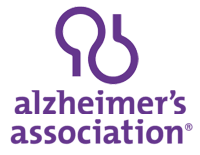From The Washington Post —
When Tatiana Lagos’s father stopped driving, she didn’t think much of it at first.
“He’d say, ‘Hey, can you pick me up?’ ” Lagos recalled of her father, who was in his early 60s and had recently retired from a career in international law. “And he was leaning heavily on his wife for the smallest things,” such as scheduling a coffee date.
Lagos, who lives in Potomac, Md., brought up her concerns with family members, including relatives in her father’s home country of Chile. But they chalked them up to the changes in his life after retirement.
“I thought maybe it’s just me, if no one else in the family is seeing it,” Lagos said, and she dropped the subject.
It was not until two or three years later, when her father had a stroke, that he was diagnosed with Alzheimer’s. By then, it was too late to involve him in discussions about treatment options or end-of-life planning.
Often, when a person first exhibits signs of dementia, close family members are the first to notice. A parent starts repeating the same stories. A spouse forgets how to get home from the grocery store. Daily life feels off in ways that are at first subtle, then less so.
Bringing up cognitive decline with a loved one can be so fraught with pain, embarrassment and denial that many are reluctant to broach the topic until far into dementia’s progression.
A survey released this week by the Alzheimer’s Association finds that nearly 90 percent of Americans say they would want others to tell them if they were showing signs of memory loss or other symptoms of dementia. And yet, nearly three quarters of Americans say having that conversation would be “challenging” for them.
 There is no cure for Alzheimer’s, but talking about it early in the disease’s progression is crucial, said Ruth Drew, director of information and support services at the Alzheimer’s Association.
There is no cure for Alzheimer’s, but talking about it early in the disease’s progression is crucial, said Ruth Drew, director of information and support services at the Alzheimer’s Association.
Talking about the disease in its early stages gives people time to take care of legal and financial issues, make a long-planned trip, participate in their treatment plan or join a medical trial, Drew said.
“It gives you a voice,” she said. “If you know early on, you have a voice on how things go and who’s going to make decisions on your behalf.”
…
Related articles
https://ohionaela.org/new-way-to-pay-single-biggest-retirement-expense/
